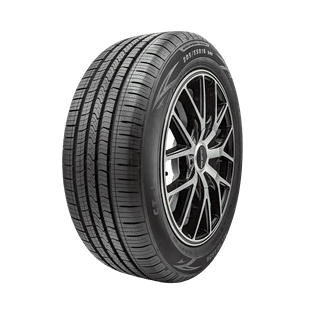The Environmental Benefits of Appropriate Tire Maintenance
Keeping appropriate tire care is often ignored, yet its effect on the setting is profound. From minimizing gas intake to lowering discharges output, the benefits are far-reaching. Appropriate tire maintenance not just extends the lifespan of tires however also reduces landfill waste and adds to enhanced air quality. The interconnectedness of these benefits highlights the crucial duty that straightforward maintenance practices can play in advertising ecological sustainability.
Minimized Fuel Intake
Improving tire maintenance methods can lead to a substantial reduction in fuel usage for automobiles. According to the United State Division of Energy, underinflated tires can decrease gas mileage by 0.2% for every 1 psi drop in pressure in all four tires.
In addition to tire pressure, regular tire rotations and placements additionally play a vital function in fuel performance. Erratically used tires can raise gas usage as the engine functions harder to keep speed and traction. By keeping proper alignment and rotating tires at advised periods, drivers can ensure even lengthen the life and put on of their tires, eventually saving fuel and decreasing their carbon impact.
Extended Tire Life-span
Prolonging the life-span of tires is an essential aspect of efficient lorry upkeep techniques that can produce expense savings and ecological advantages over time. By correctly maintaining tires, vehicle drivers can significantly prolong their use, lowering the frequency at which brand-new tires require to be produced and old ones disposed of. This not just saves valuable sources however also minimizes the power and discharges associated with tire manufacturing and disposal processes.
Consistently examining tire pressure, rotating tires, and making sure correct placement are necessary action in expanding tire lifespan. Ample step depth is important for ideal traction and security, yet it also plays a duty in the length of time tires can be used before needing replacement. Furthermore, staying clear of aggressive driving behaviors that increase tire wear, such as severe stopping and doglegs, can additionally enhance tire durability.
Eventually, increasing the longevity of tires via aggressive upkeep not just benefits the environment by minimizing waste and preserving resources but additionally results in set you back financial savings for vehicle owners by postponing the need for new tire acquisitions.
Reduced Exhausts Output
Effective tire upkeep techniques add to a decrease in discharges result, straightening this article with ecological sustainability goals in the automobile market. Appropriately filled with air tires, regularly revolved and straightened, can boost fuel effectiveness, thus decreasing the general co2 discharges from automobiles. When tires are underinflated, the engine needs to function tougher to drive the vehicle, leading to increased fuel consumption and higher emissions. By maintaining optimal tire pressure levels, drivers can help minimize these Web Site adverse environmental effects.
Additionally, properly maintained tires additionally enhance traction and lower rolling resistance, additionally enhancing fuel efficiency. This, subsequently, reduces the amount of exhaust gases released right into the environment. Furthermore, making certain tires are appropriately inflated and straightened can prolong the lifespan of the tires, decreasing the frequency of tire substitutes and the associated ecological prices of tire production and disposal.

Decreased Land Fill Waste
Provided the positive impact of proper tire maintenance on decreasing emissions outcome, an additional significant environmental advantage is the possibility for lowered landfill waste. By making certain that tires are appropriately blown up, lined up, balanced, and turned consistently, their life-span can be dramatically prolonged.
Improved Air Top Quality
Enhancing air high quality through correct tire upkeep techniques is an essential element of lasting environmental stewardship. When tires are underinflated, they produce extra moving resistance, bring about raised fuel intake and greater exhausts of dangerous contaminants such as carbon monoxide and nitrogen oxides. Effectively filled with air tires not just enhance fuel helpful resources effectiveness yet likewise lower the quantity of pollutants released into the air.
Additionally, properly maintained tires with correct walk deepness and positioning add to much safer motoring conditions, reducing the likelihood of accidents that can cause the launch of additional contaminants into the atmosphere. By prolonging the lifespan of tires with normal upkeep and turning, less tires are thrown out too soon, reducing the ecological influence of tire disposal and production processes.
Final Thought
In verdict, proper tire maintenance uses countless ecological benefits. It is important for people to focus on tire maintenance as a straightforward yet reliable way to protect the environment for future generations.
Appropriate tire maintenance not only expands the life expectancy of tires however also lowers landfill waste and adds to enhanced air quality - tire tracks morris il. By preserving proper alignment and turning tires at recommended intervals, motorists can make certain also wear and lengthen the life of their tires, ultimately saving fuel and decreasing their carbon impact
By properly maintaining tires, motorists can substantially lengthen their usability, reducing the regularity at which brand-new tires need to be produced and old ones disposed of.Regularly inspecting tire pressure, turning tires, and ensuring proper alignment are essential steps in expanding tire life expectancy. In addition, making sure tires are appropriately pumped up and aligned can extend the life expectancy of the tires, lowering the regularity of tire replacements and the connected environmental prices of tire production and disposal.